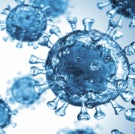Exposure to air pollution can reduce the chances of achieving a live birth from in vitro fertilisation by about 40 per cent, according to a new study.
IVF is an assisted reproductive technology that uses medication and surgical procedures to fertilise an egg outside the body and implant the fertilised egg into a woman’s uterus.
For this study, researchers analysed the impact of air pollution on about 3,600 frozen embryo transfers conducted in Australia’s Perth over eight years. They focussed on exposure to fine particulate matter in the two weeks leading up to egg collection for IVF and found the odds of a live birth fell by 38 per cent.
“This is the first study that has used frozen embryo transfer cycles to separately analyse the effects of pollutant exposure during the development of eggs and around the time of embryo transfer and early pregnancy,” study lead author Sebastian Leathersich said.
“We could therefore evaluate whether pollution was having an effect on the eggs themselves, or on the early stages of pregnancy.”
The negative impact of air pollution was observed despite overall “excellent” air quality during the study period, researchers noted.
“Even in a part of the world with exceptional air quality, where very few days exceed the internationally accepted upper limits for pollution, there is a strong negative correlation between the amount of air pollution and the live birth rate in frozen embryo transfer cycles,” Dr Leathersich said.
Air pollution is estimated to cause about four million premature deaths a year globally.
It can cause a range of adverse health conditions such as heart and lung diseases.
The latest study, published in the journal Human Reproduction, underlines the risk of air pollution to reproductive health.
“Climate change and pollution remain the greatest threats to human health and human reproduction is not immune to this,” Dr Leathersich added.
“Minimising pollutant exposure must be a key public health priority.”
Source: independent.co.uk



